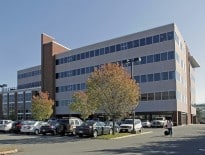Boston Mayor Marty Walsh issued guidelines for office buildings in the city that plan to reopen to tenants on Monday.
The guidelines largely mirror the state’s guidelines and industry practices but provide more specific details for areas like lobbies and elevators. Office occupancy is limited to 25 percent of pre-COVID-19 capacity.
“Our first and foremost priority in making available these guidelines is to empower businesses and employers to act now and put in place safety precautions and protocols before beginning to reopen,” Walsh said in a statement. “In the city of Boston, we recognize the size of our commercial sector and the unique role we play in the region’s working and commuting patterns. That’s why it’s so important that as a city, we collectively do everything we can now to institute the necessary safeguards that will allow businesses to reopen in a safe and healthy way when they are ready to do so.”
The requirements include:
- Buildings must have “clear signage and markers of 6-foot social distancing spaces” in all high traffic areas, along with sanitizing stations.
- Building lobbies and other public gathering spaces must be closed to non-tenants and revolving doors must be discouraged in favor of swing doors wherever possible.
- Employee security access points must be no-touch.
- No more than four people are allowed in an elevator at once, and all must wear face masks unless a person’s medical condition or disability precludes that. Stairs should be limited to one direction, up or down. Handrails, buttons and door handles must be sanitized regularly.
- Building cafeterias must have one-way traffic flows and 6-foot social distancing markers at checkout stations, along safety barriers to protect staff and, where possible, touchless payment options. Self-serve fountain machines and coffee stations are prohibited, prepackaged single-use utensils are required and high-touch areas must be regularly sanitized.
- Windows should be left open, if possible.
Offices must maintain a continued and adequate supply chain for masks and other personal protective equipment for staff and must name a coordinator who will be responsible for monitoring compliance with COVID-19 safety protocols. Employers are asked to, when possible, allow their staff flexibility in their hours to allow for off-peak commuting, and are required to make a written cleaning plan and exposure response protocol available for all staff to review.




 |
| 


